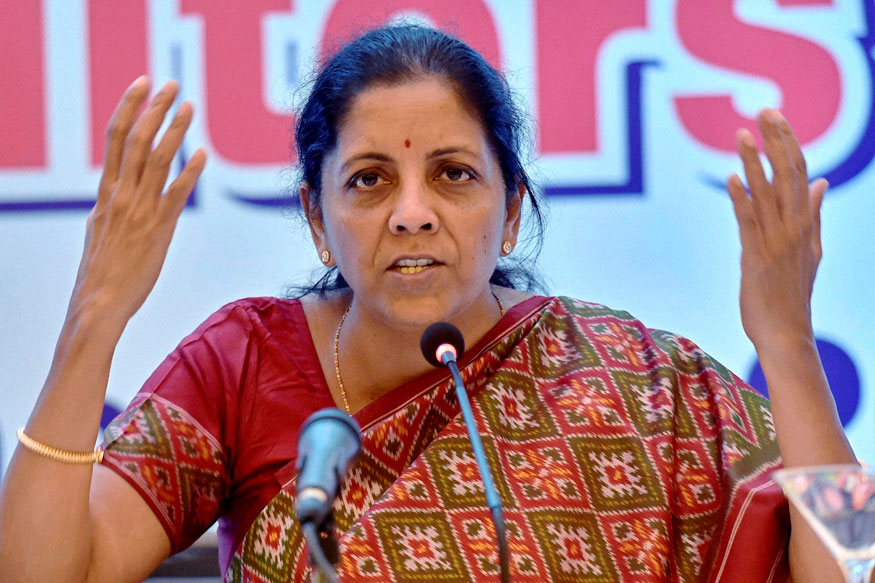Edit Note: For the last more than six months, more than 50,000 troops from China and India are facing each other in a state of high alert and at huge costs. They are expected to stay put in the inhuman conditions for this winter as the series of talks between the two countries have failed to manage the peace. The same heights were in questions exactly 150 years ago when British India and the Kashmir government entered into an agreement to lay a formal trade route between Ladakh and the East Turkistan. The agreement signed by Maharaja Ranbir Singh and Viceroy’s representative, Thomas Douglas Forsyth (1827-1886) on April 2, 1870, was ratified by the Governor-General at Sialkot on May 2, 1870, on whose behalf C U Aitchison, Secretary Foreign department signed it. Based on the agreement, the rules guiding the Joint Commission were issued in 1872
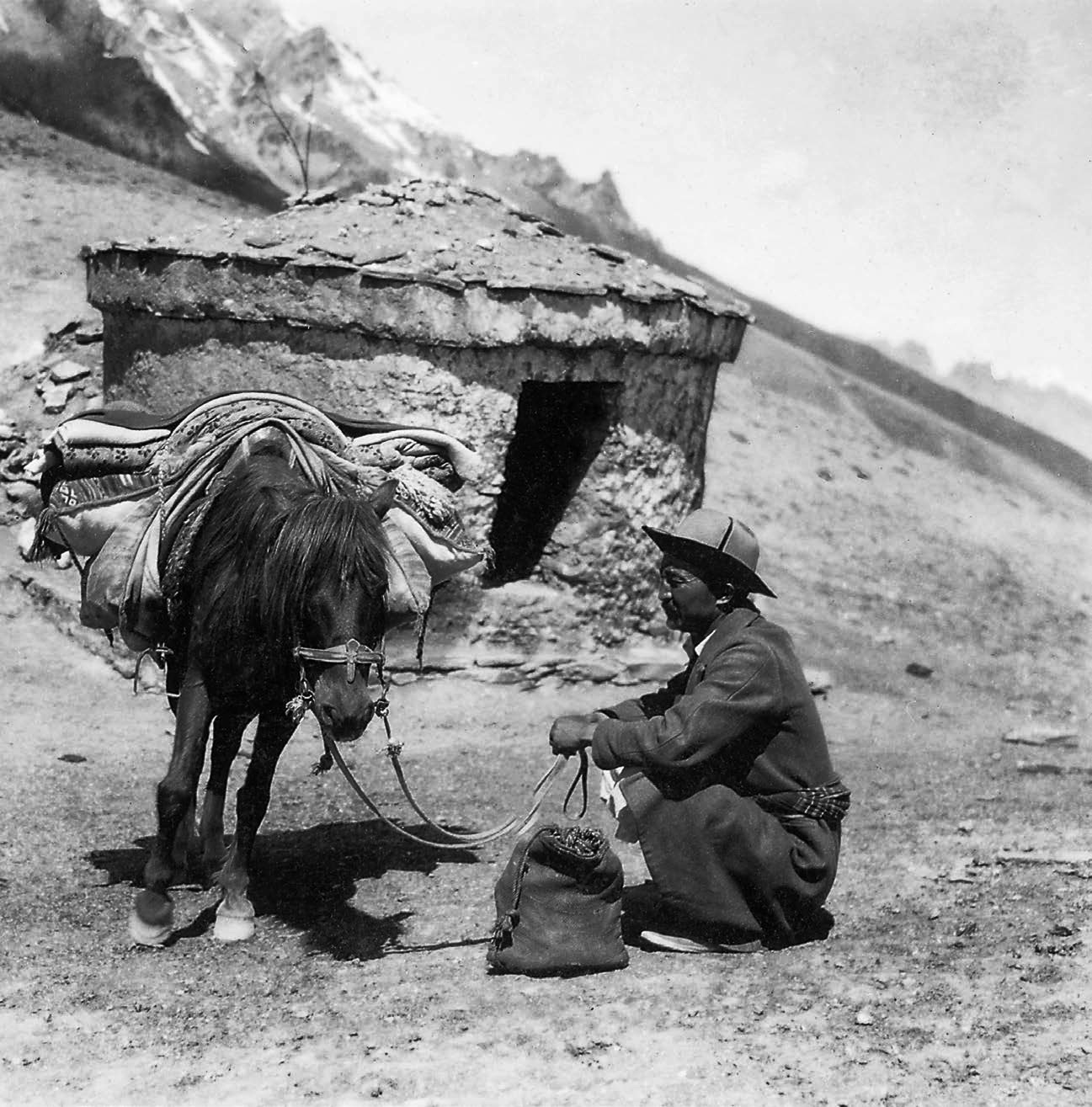
The Agreement
WHEREAS in the interest of the high contracting parties and their respective subjects it is deemed desirable to afford greater facilities than at present exist for the development and security of trade with Eastern Turkestan, the following Articles have with this object been agreed upon:
ARTICLE I: With the consent of the Maharaja, officers of the British Government will be appointed to survey the trade routes through the Maharaja’s territories from the British frontier of Lahoul to the territories of the Ruler of Yarkand, including the route via the Chang Chemoo Valley. The Maharaja will depute an officer of his Government to accompany the surveyors, and will render them all the assistance in his power. A map of the routes surveyed will be made, an attested copy of which will be given to the Maharaja.
ARTICLE II: Whichever route towards the Chang Chemoo Valley shall, after examination and survey as above, be declared by the British Government to be the best suited for the development of trade with Eastern Turkestan shall be declared by the Maharaja to be a free highway in perpetuity, and at all times for all travellers and traders.
ARTICLE III: For the supervision and maintenance of the road in its entire length through the Maharaja’s territories, the regulation of traffic on the free highway described in Article II, the enforcement of regulations that may be hereafter agreed upon, and the settlement of disputes between carriers, traders, travellers, or others using that road, in which either of the parties or both of them are subjects of the British Government or of any foreign State, two Commissioners shall be annually appointed, one by the British Government, and the other by the Maharaja. In the discharge of their duties, and as regards the period of their residence, the Commissioners shall be guided by such rules as are now separately framed, and may, from time to time, hereafter be laid down by the joint authority of the British Government and the Maharaja.
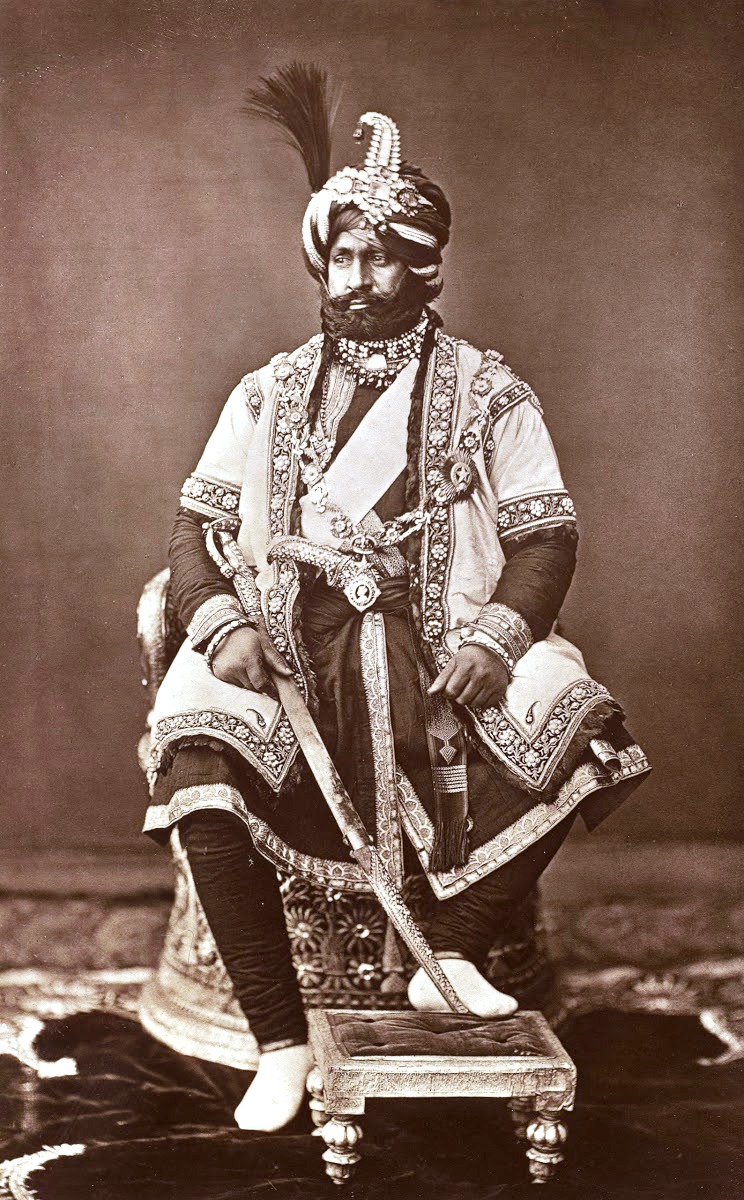
ARTICLE IV: The jurisdiction of the Commissioners shall be defined by a line on each side of the road, at a maximum width of two statute koss, except where it may be deemed by the Commissioners necessary to include a wider extent for grazing grounds. Within this maximum width the surveyors appointed under Article I shall demarcate and map the limits of jurisdiction which may be decided on by the Commissioners as most suitable, including grazing grounds; and the jurisdiction of the Commissioners shall not extend beyond the limits so demarcated. The land included within these limits shall remain in the Maharaja’s independent possession, and, subject to the stipulations contained in this Treaty, the Maharaja shall continue to possess the same rights of full sovereignty therein as in any other part of his territories, which rights shall not be interfered with in any way by the Joint Commissioners.

ARTICLE V: The Maharaja agrees to give all possible assistance in enforcing the decisions of the Commissioners, and in preventing the breach or evasion of the regulations established under Article III.
ARTICLE VI: The Maharaja agrees that any person, whether a subject of the British Government, or of the Maharaja, or of the Ruler of Yarkand, or of any foreign State, may settle at any place within the jurisdiction of the Commissioners, and may provide, keep, maintain, and let for hire at different stages the means of carriage and transport for the purposes of trade.
ARTICLE VII: The two Commissioners shall be empowered to establish supply depots, and to authorize other persons to establish supply depots, at such places on the road as may appear to them suitable; to fix the rates at which provisions shall be sold to traders, carriers, settlers, and others, and to fix the rent to be charged for the use of any rest-houses or serais that may be established on the road. The officers of the British Government in Kullu, &c, and the officers of the Maharaja in Ladakh shall be instructed to use their best endeavours to supply provisions on the indent of the Commissioners at market rates.
ARTICLE VIII: The Maharaja agrees to levy no transit duty whatever on the aforesaid free highway, and the Maharaja further agrees to abolish all transit duties levied within his territories on goods transmitted in bond through His Highness’s territories from Eastern Turkestan to India and vice versa, on which bulk may not be broken within the territories of His Highness. On goods imported into or exported from His Highness’s territory, whether by the aforesaid free highway or any other route, the Maharaja may levy such import or export duties as he may think fit.
ARTICLE IX: The British Government agree to levy no duty on goods transmitted in bond through British India to Eastern Turkestan or to the territories of His Highness the Maharaja. The British Government further agree to abolish the export duties now levied on shawls and other textile fabrics manufactured in the territories of the Maharaja, and exported to countries beyond the limits of British India.
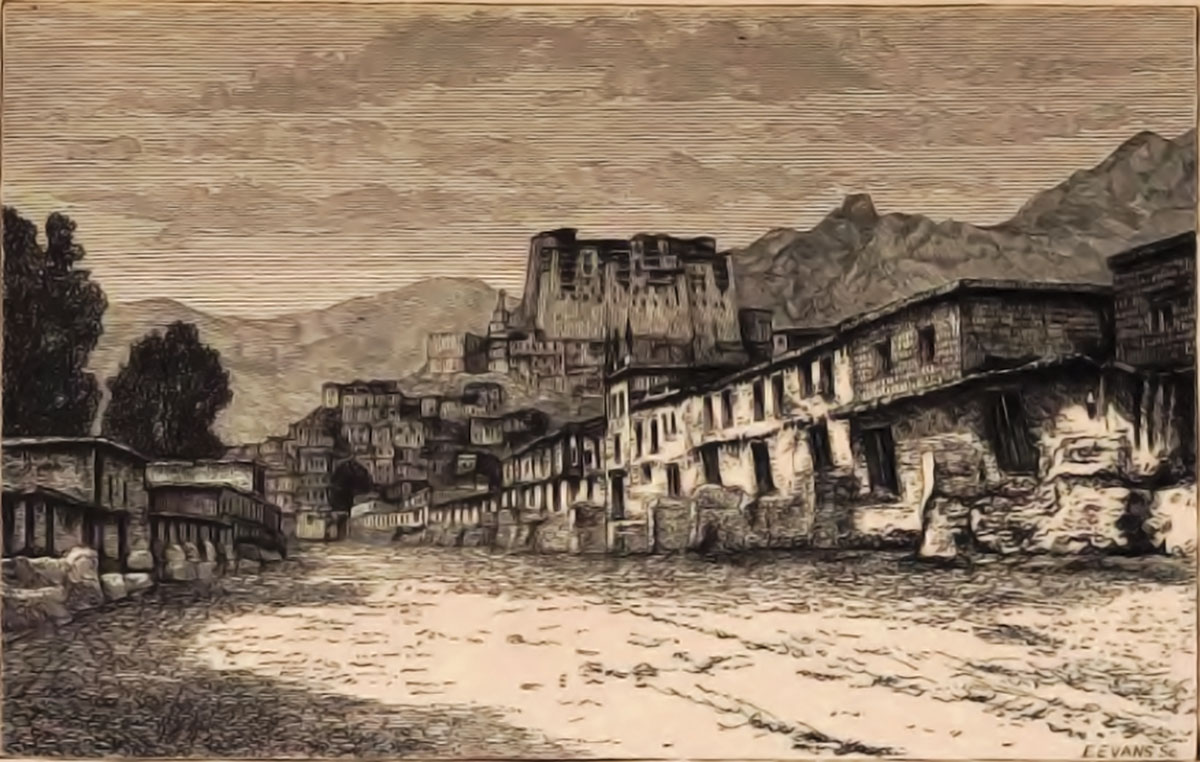
ARTICLE X: This Treaty, consisting of ten Articles, has this day been concluded by Thomas Douglas Forsyth, CB, in virtue of the full powers vested in him by His Excellency the Eight Honourable Eichard Southwell Bourke, Earl of Mayo, Viscount Mayo, of Monycrower, Baron Naas of Naas, KP, GMSI, PO, &c, &c, Viceroy and Governor-General of India, on the part of the British Government, and by the Maharaja Runbeer Singh aforesaid; and it is agreed that a copy of this Treaty, duly ratified by His Excellency the Viceroy and Governor-General of India, shall be delivered to the Maharaja on or before the 7th of September, 1870.
Signed, sealed, and exchanged at Sealkote on the second day of April, in the year of our Lord one thousand eight hundred and seventy, corresponding with the 22nd day of Bysack Sumbut, 1927.
(Signed)
Signature of the Maharaja of Cashmere.
T D FORSYTE
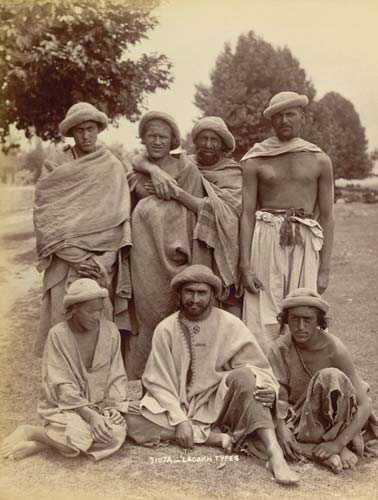
The Joint Commission Rules
- As it is impossible, owing to the character of the climate, to retain the Commissioners throughout the year, the period during which they shall exercise their authority shall be taken to commence on 15th May, and to end on 1st December.
- During the absence of either Commissioner, cases may be heard and decided by the other Commissioner, subject to appeal to the Joint Commissioners.
- In the months when the Joint Commissioners are absent, i.e. between 1st December and 15th May, all cases which may arise shall be decided by the Wuzeer of Ladakh, subject to appeal to the Joint Commissioners.
- The Joint Commissioners shall not interfere in cases other than those which affect the development, freedom, and safety of the trade, and the objects for which the Treaty is concluded, and in which one of the parties, or both, are either British subjects, or subjects of a foreign state.
- In civil disputes the Commissioners shall have power to dispose of all cases, whatever be the value of the property in litigation.
- When the Commissioners agree, their decision shall be final in all cases. When they are unable to agree, the parties shall have the right of nominating a single arbitrator, and shall bind themselves in writing to abide by his award. Should the parties not be able to agree upon a single arbitrator, each party shall name one, and the two Commissioners shall name a third, and the decision of the majority of the arbitrators shall be final.
- In criminal cases the powers of the Commissioners shall be limited to offences such as in British territory would be tried by a subordinate Magistrate of the First Class, and as far as possible the procedure of the Criminal Procedure Code shall be followed. Cases of a more heinous kind should be made over to the Maharaja for trial, if the accused be not a European British subject; in the latter case he should be forwarded to the nearest British Court of competent jurisdiction for trial.
- All fines levied in criminal cases, and all stamp receipts levied according to the rates in force for civil suits in the Maharaja’s dominions, shall be credited to the Cashmere Treasury. Persons sentenced to imprisonment shall, if British subjects, be sent to the nearest British jail. If not British subjects, offenders shall be made over for imprisonment in the Maharaja’s jails.
- The practice of cow-killing is strictly prohibited throughout the jurisdiction of the Maharaja.
- If any places come within the line of road from which the towns of Leh, &c., are supplied with fuel or wood for building purpose, the Joint Commissioners shall so arrange with the Wuzeer of Ladakh that those supplies are not interfered with.
- Whatever transactions take place within the limits of the road shall be considered to refer to goods in bond. If a trader opens his load, and disposes of a portion, he shall not be subject to any duty so long as the goods are not taken for consumption into the Maharaja’s territory across the line of road. And goods left for any length of time in the line of road subject to the jurisdiction of the Commissioners shall be free.
- Where a village lies within the jurisdiction of the Joint Commissioners, then, as regards the collection of revenue, or in any case where there is necessity for the interference of the casual Revenue authorities on matters having no connection with the trade, the Joint Commissioners have no power whatever to interfere; but, to prevent misunderstanding, it is advisable that the Revenue officials should first communicate with the Joint Commissioners before proceeding to take action against any person within their jurisdiction. The Joint Commissioners can then exercise their discretion to deliver up the person sought, or to make a summary inquiry to ascertain whether their interference is necessary or not.
- The Maharaja agrees to give rupees 5,000 this year for the construction of the road and bridges, and in future years His Highness agrees to give rupees 2,000 per annum for the maintenance of the road and bridges. Similarly, for the repairs of serais a sum of rupees 100 per annum for each serai will be given. Should further expenditure be necessary, the Joint Commissioners will submit a special report to the Maharaja, and ask for a special grant. This money will be expended by the Joint Commissioners, who will employ free labour at market rates for this purpose. The officers in Ladakh and in British territory shall be instructed to use their best endeavours to supply labourers on the indent of the Commissioners at market rates. No tolls shall be levied on the bridges on this line of road.
- As a temporary arrangement, and until the line of road has been demarcated, or till the end of this year, the Joint Commissioners shall exercise the powers described in these rules over the several roads taken by the traders through Ladakh from Lahoul and Spiti.
(Signed)
Maharaja Runbeer Singh
T D Forsyth




